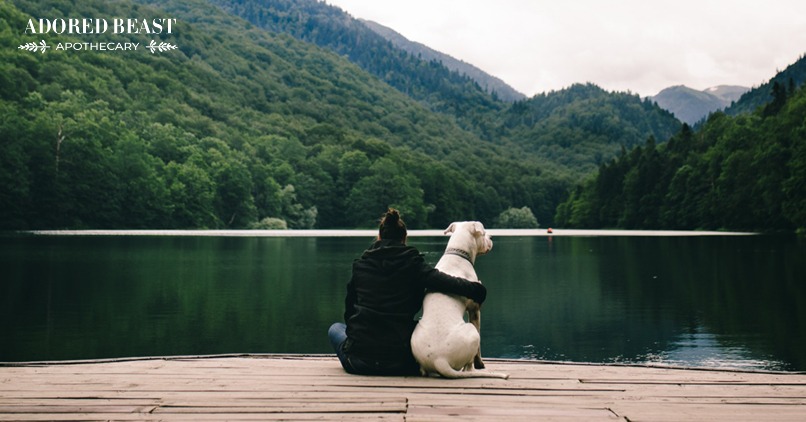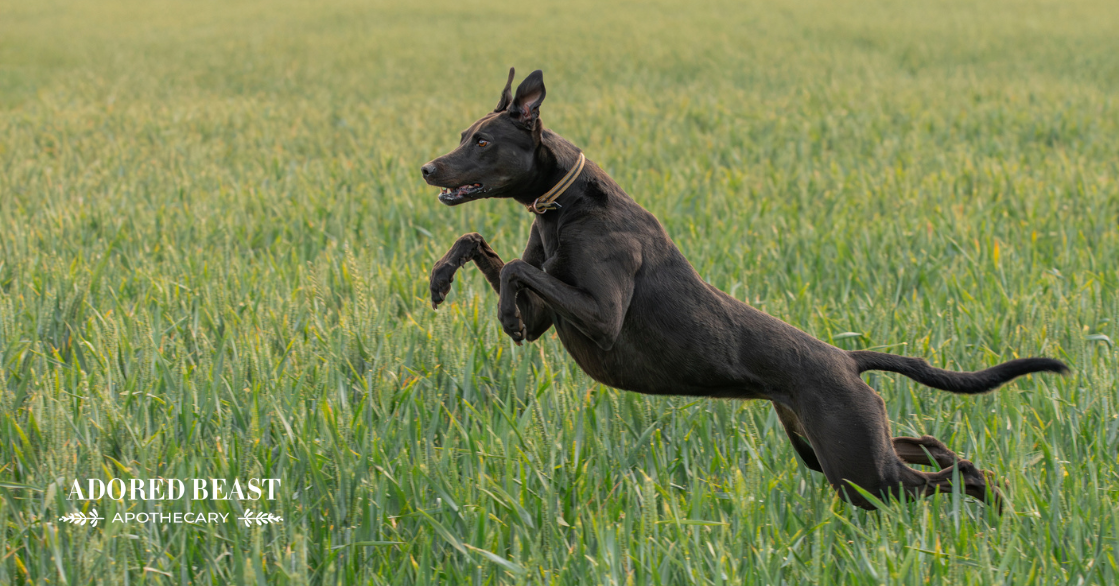This blog is dedicated to my Mother, Katherine Lee, and the one year anniversary of her passing. Her love for me, her deep connection and support, never wavered. Her dedication to animals was fierce and unstoppable, and her love continues to touch me every time I look into the eyes of my animals, and here is why…
Cancer is one of the leading causes of death for dogs in today’s world. In their everyday lives, our animals face numerous stressors and environmental factors which can eventually cause this disease.
But how we face a cancer diagnosis can make all the difference in the world in how our animals cope, and how we cope.
The unconditional love we have for our dogs gives us the strength to step outside our fear of acceptance and fight for the true cure for cancer.
Today I want to talk with you about canine cancer prevention with oxytocin.
Oxytocin and Canine Cancer Prevention
Oxytocin has been dubbed the love drug, the feel-good hormone, the hug hormone, the cuddle chemical, and the morale molecule. It’s been described as the “most amazing molecule in the world.”
What it really is is a neuropeptide that inhibits stress-inducing activity of the hypothalamic-pituitary-adrenal axis and is increasingly becoming recognized for its role in bonding, socialization, and stress relief. This hormone has the ability to decrease cortisol, blood pressure, inflammation and pain. It’s used to treat anxiety, post traumatic stress, depression, debilitating shyness, social anxiety and mood disorders.
Pretty impressive, no?
Now extensive medical research is looking into its role in cancer prevention:
- Research shows that in vitro (a study of cells in a test tube or under glass), oxytocin inhibits the proliferation (growth) of neoplastic (cancer) cells of either epithelial, mammary and endometrial, nervous or bone origin, all expressing oxytocin receptors.
- The Australian National University is looking into using oxytocin as a therapy in lung cancer, which one in 28 people are diagnosed with, and is the number one cause of cancer death in the country.
- Another study shows that oxytocin production in premenopausal, non-lactating women may be protective against the high rates of mitotic breast cell division (the stage and numbers of cancer cells dividing) in breast cancer.
A Healing Gaze
Oxytocin is produced naturally through the gaze a mother has with her infant or sexual partner in monogamous species. This gaze interaction, or loop, is what activates the production of oxytocin and the attachment or bond. This bond has always been researched within a species that shares social cues and recognition of a particular partner (i.e. humans).
That is, until now.
A 2015 Japanese study published by the American Association for the Advancement of Science concluded that we have an oxytocin-mediated positive loop with our dogs that’s similar to the one that exists in the gaze between a mother and her infant. It’s mediated by an eye-to-eye connection. This study determined that oxytocin levels increased in both humans and dogs, leading to the deepening of mutual relationships and interspecies bonding.
I just knew it!!!
How do we increase the production of oxytocin? Nobody needs to show you a research paper for you to know what it feels like to really connect with your dog! Or how he or she reacts to you laughing, especially if they know it’s them making you laugh! We also know what they look like when we are sad or angry or frustrated.
The problem is that they give us unconditional love, no matter what mood we are in, so it is easy to not pay attention to our own stuff! So, if we are all truly reading this because we want the best for our dogs (AND I KNOW WE DO) then we need to be honest with ourselves.
What do you believe will make your dog healthier and happier? Going for a walk, playing on the floor in your apartment, or simply spending time truly engaging with them? Or, spending hours online searching for ways to cure cancer?
And which of those two do you think is healthier, physically and mentally, for you??
YOU GUYS HAVE GOT THIS!!!
It’s easy – and you probably already do it all the time:
- take them out more
- let them play more
- book play dates
- even play in the house
- take 10 min breaks while dinner is cooking or working on your computer and play with your dog
Get creative. To them, every minute more of play, exercise, and connection is so appreciated. Let your hair down, act like a kid, be silly, tell them a story, and most importantly, LOOK INTO THEIR EYES!
BUT WHATEVER YOU DO, PUT DOWN YOUR PHONE WHEN YOU ARE DOING IT!
Don’t stress about it! Start with baby steps, even an extra 2 minutes a day, and keep adding minutes.
Our Connection with Dogs and Why We Have Them
Why do we have dogs? A million reasons!
On some level they ground us, and teach us, and give us unconditional love. They are the best buddies on the planet to teach us to be present in an era of constant multi-tasking and filling every second of every day.
I believe in my core that our animals are in our lives to teach, help, and cure us! I cannot begin to tell you of the thousands of clients whose lives (and the lives of their families) have been turned around by the action to save their dog therefore reflecting on their own lifestyle.












